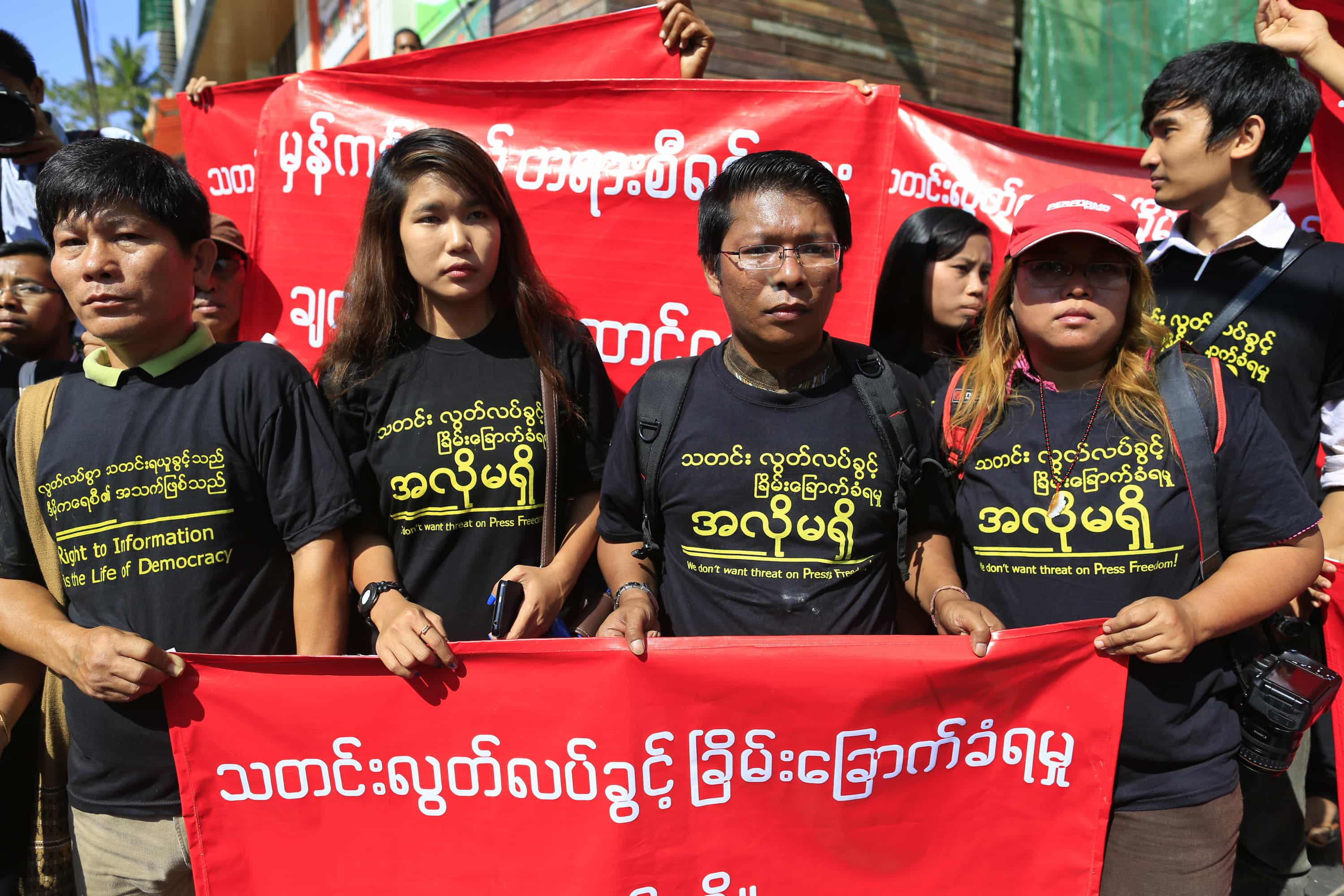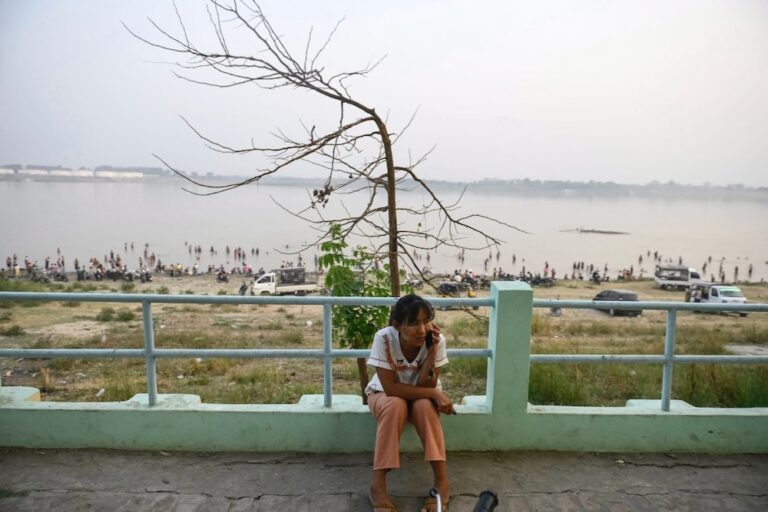The sentencing of Burmese journalist Ma Khine may have been linked politically motivated because of the recent critical commentary by the "Eleven Daily" newspaper about widespread corruption in the judiciary.
UPDATE from Mizzima News: Journalists demand media freedom, condemn jailing of reporter (8 January 2014)
A Burmese journalist was sentenced to three months in prison on Tuesday December 17, 2013 on charges of defamation, trespassing, and “using abusive language,” according to local news reports. On December 20, the Committee to Protect Journalists strongly condemned the conviction and called on the court to reverse the verdict on appeal.
After a one-and-a-half-month trial, the Loikaw Township Court convicted Ma Khine, a reporter with the Eleven Media Group, under Articles 294, 451 and 500 of the penal code, according to news reports. She was sentenced to three months for trespassing, one month for defamation, and one month for using abusive language. Ma Khine plans to appeal the verdict, according to Eleven Media Group. She will be serving the terms simultaneously in Loikaw Prison in eastern Kayah State, according to an editor of Eleven Media Group, who communicated by email with CPJ.
Eleven Media Group, which includes a newspaper, Internet, and TV outlets, said the judgment against Ma Khine could have been politically motivated because of the recent critical commentary by its newspaper, Eleven Daily, about widespread corruption in the judiciary.
“We call for the verdict against journalist Ma Khine to be scrapped on appeal,” said Shawn Crispin, CPJ’s senior Southeast Asia representative. “The jailing of a journalist on questionable charges shows just how far Burma still needs to go in reforming and scrapping laws that are often used to suppress the media.”
The charges against Ma Khine were filed by Aye Aye Phyo, a lawyer, and the lawyer’s father, Aung Shein, who claimed that on October 27, 2013, the journalist forcibly entered their home to interview the lawyer about a case. They said she used abusive language and defamed them when she was asked to leave their private residence.
But Ma Khine said in her court testimony that she was invited into their home and that she had identified herself as a journalist. She said she was asked to leave after Aye Aye Pho reacted angrily to a question about how much she charged in legal fees for handling a case.
The case, in which Aye Aye Pho represented the plaintiff, was a legal dispute between a local movie distributor and a movie rental shop owner over the distribution of pirated movies, according to local reports.
Burma’s previous military regime regularly jailed journalists on vague and arbitrary national security-related laws that remain on the books. Ma Khine represents the first Burmese reporter to be imprisoned since President Thein Sein released 14 jailed journalists in a 2012 presidential pardon, according to CPJ research.



